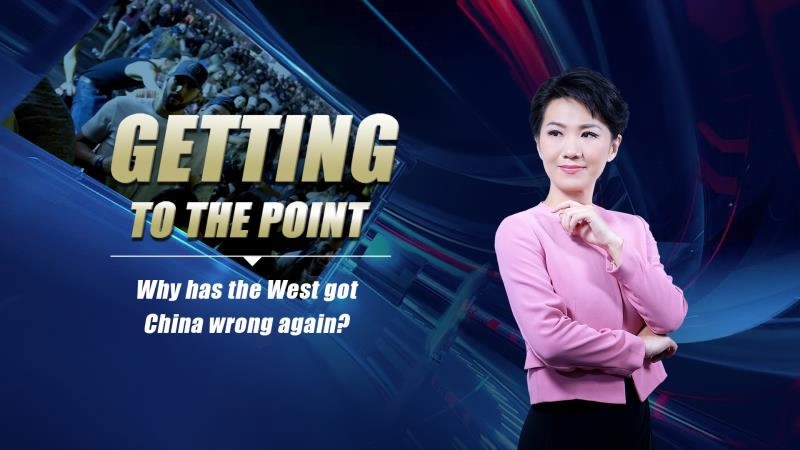
Opinions
12:20, 07-Mar-2018
Getting to the Point: Why has the West got China wrong again?
By CGTN's Liu Xin

Some reports in the international media have claimed that China’s proposed constitutional amendments have proved the West wrong in its decades-long bet on China. The country did not evolve as expected to become more like the West. Instead, they say, it has moved further away from the likes of a Western-style democracy.
According to a recent article in The Economist, Western leaders believed giving China a stake in institutions such as the World Trade Organization would encourage China to evolve into a market economy. And eventually the Chinese people would come to yearn for democratic freedoms, rights, and the rule of law. Or so the thinking went. However, neither of these predictions, the article asserts, are happening and the politics and economics of China have been steered towards repression, state control, and confrontation.
I would like to respond to such articles by asking three questions.
First, did China ever promise or show any interest or intention to become part of the West in the first place?
Politically, China never said it would eventually adopt a Western system and on the contrary, China has said repeatedly it would not. China strives to meet the increasing and diversified needs of its people for a better life. However, the path to that goal is not through a Western political system, but through perfecting a socialist system with Chinese characteristics. Such determination has been reinforced by the crisis of confidence that Western democracies are suffering - something the article acknowledged. Why should China copy a political system that’s clearly in trouble?
Economically, in real life, a pure market economy rarely exists. Government subsidies, for instance, are a common practice in so-called market economies too. And China never promised to become a Western-style free market economy, prone to periodical crises. Wise planning and a strong public sector have been vital for China’s economic prosperity, together with a vibrant private sector.
My second question is: Why can’t China's way work?
Facts speak for themselves here. The World Bank said last March that “Since initiating market reforms in 1978, China has shifted from a centrally planned to a market-based economy and has experienced rapid economic and social development. China “has lifted more than 800 million people out of poverty. It has been the largest contributor to world growth since the global financial crisis of 2008. The World Bank also said, China is still a developing country and its market reforms are incomplete. To address that China has vowed further reform and opening up.
Whatever the specific measures are, however, China is likely to stick to its unique systems and advance at a pace it sees fit.
My last question is, why can peace and prosperity only be possible on Earth when all nations become the same? The future can and should exist with diversity. Perhaps it’s the mentality - the false dichotomy between convergence or conflict - that is a real threat to humankind. You’ve got the point. Follow me on Facebook or Twitter using the handle @thepointwithlx. Thanks for watching.

SITEMAP
Copyright © 2018 CGTN. Beijing ICP prepared NO.16065310-3
Copyright © 2018 CGTN. Beijing ICP prepared NO.16065310-3